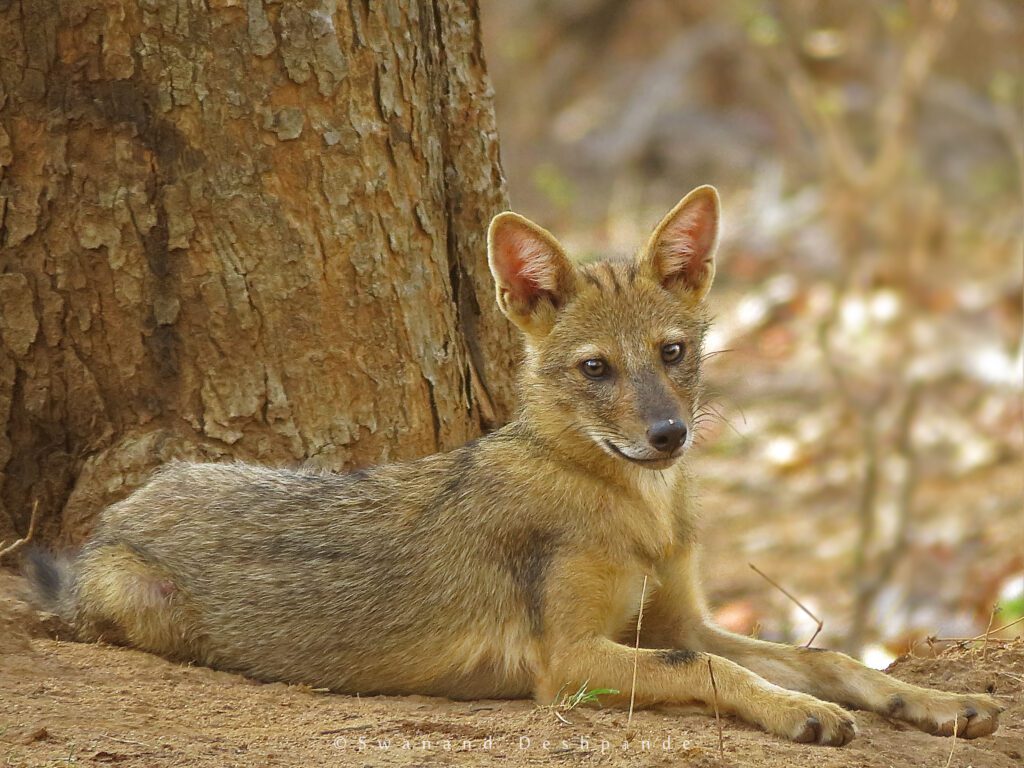Syllabus:
GS3: Conservation, environmental pollution and degradation, environmental impact assessment
Context: The research undertaken by the NGO Aranyakam Nature Foundation has revealed that golden jackals (Canis aureus naria) have found their home in human settlements and not in forests.
More on the News
- The study titled ‘The Uncelebrated Wanderers: Unravelling the Mysteries of Kerala’s Golden Jackals’ used a unique mix of citizen science and predictive modelling.
- The study involved 2,200 participants and recorded more than 5,000 sightings across 874 villages.
- An extensive citizen science study has estimated that Kerala is home to a population of 20,000 to 30,000 Golden Jackals.
- The researchers, however, have identified significant threats to the lives of the golden jackals. The reasons they cited are manifold, ranging from habitat loss due to landscape changes, health issues arising from dependency on garbage, and potential hybridisation with stray dogs.
- This genetic hybridisation could compromise the jackals’ long-term genetic integrity, which subject experts feel warrants urgent research.
Highlights of the study
- As per the golden jackals’ most common habitats were human-modified landscapes, like cashew, coconut and mango plantations, as well as paddy fields, rubber estates and rural settlements.
- The study also found that only 2% of jackal sightings were from protected forest areas. Instead, jackals thrive in open lowland regions, particularly those below 200 meters in elevation.
- Their presence in and around urban centres like Kannur, Kozhikode, Thrissur, Ernakulam and Thiruvananthapuram highlights their remarkable ability to survive in a human-dominated environment.
- Their preferred habitats include coconut groves (24%), paddy fields (8%), rubber plantations (6%), rural settlements (10%), and even urban areas (5.6%), showing a remarkable adaptability to human-altered environments.
Golden Jackal
- A golden jackal is a medium-sized mammal, omnivore in nature.
- Compared to a wolf, these canids are physically thinner and have a slender muzzle. It has a short, yet bushy tail that ends with a tan or black tip.
- Golden jackals live in a group of 4 to 5 individuals. They hunt together, share their food, groom each other, and jointly defend their territory, which they mark with the scent of their excretion.
- It is strictly nocturnal in areas inhabited by humans, but may be partly diurnal elsewhere. They live in mated pairs and are strictly monogamous.
Distribution
- Golden jackals are found across North and East Africa, Southeast Europe, South Asia, and as far as Burma. In India, they live in varied habitats from the Himalayan foothills to the Western Ghats.
- Geographically, the jackal’s distribution spans much of Kerala, but is notably sparse in the Western Ghats, the Alappuzha coast and Attappady due to habitat unsuitability or competitive pressures.
- However, isolated populations have been observed in Munnar and Eravikulam as the findings suggest some degree of adaptation to high-altitude ecosystems.
- Nonetheless, golden jackals have been frequently reported in urban areas in Kannur, Kozhikode, Thrissur, Ernakulam and Thiruvananthapuram.
Threats to the lives of the golden jackals
- Habitat loss due to landscape changes: Urbanisation, agricultural expansion, and infrastructure projects are rapidly altering the natural landscapes that golden jackals depend on. As forests and scrublands shrink or get fragmented, jackals lose essential hunting grounds and shelter, forcing them into human-dominated areas where survival becomes harder.
- Health issues arising from dependency on garbage: With natural prey declining and habitat shrinking, jackals often scavenge from garbage dumps. This unnatural diet exposes them to spoiled food, plastics, and toxins, leading to health problems such as infections, digestive issues, and even poisoning. It also increases the risk of disease transmission from humans and domestic animals.
- Potential hybridisation with stray dogs: In areas where jackals and stray dogs coexist, there is a rising concern over hybridisation. This genetic mixing can threaten the purity of the golden jackal species, potentially altering their behaviour, adaptability, and long-term survival. It may also spread diseases across species more easily.
Conservation Status
- IUCN: Least Concern
- CITES: Appendix III
- Wildlife Protection Act, 1972 (India): Schedule I

